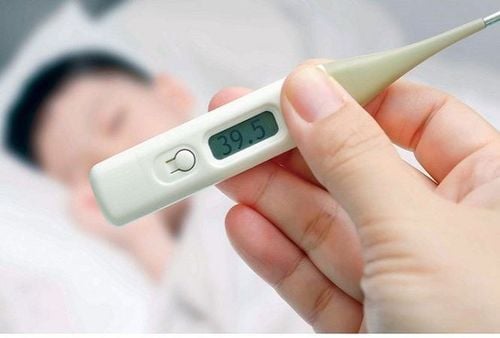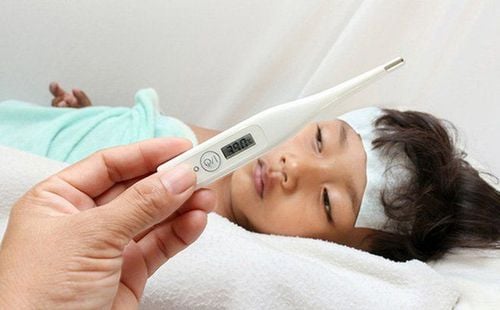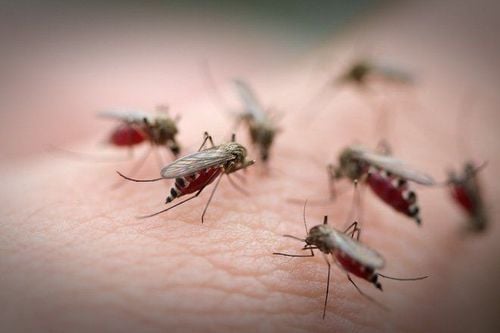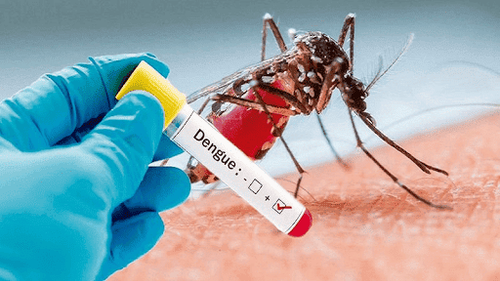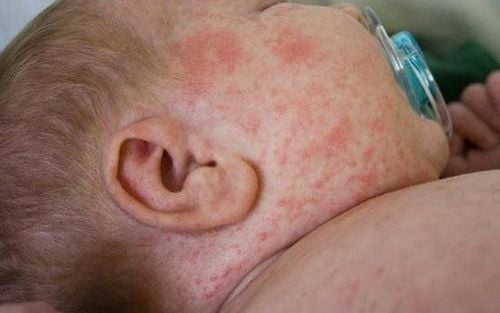This article is reviewed by Master, Medical Doctor Nguyen Thi Nhat, an Infectious Disease Specialist at the Department of Medical Examination & Internal Medicine in Vinmec Hai Phong International General Hospital.
Dengue fever usually progresses quickly; the symptoms get worse with each stage. After the first high fever, the disease will gradually recover in the following 7-10 days.
1. Causes of dengue fever
Dengue fever occurs mainly in tropical countries. In our country, though rampant all year round, the disease outbreaks into a large epidemic, mostly unforeseen, in the rainy season - the peak breeding season for mosquitoes.
Hemorrhagic fever is mainly caused by the Dengue virus from the mosquito Aedes aegypti (zebra) mosquito. The female mosquito will suck the blood of a host infected with the Dengue virus. The virus will then incubate in the mosquito for 8 to 11 days. It will transmit the disease to humans through bites.
2. How long does it take to recover from dengue fever?
For those at risk or suffering from dengue fever, a major concern is how long it takes for dengue to go away and the treatment. Dengue fever, like many infectious diseases, has a 3-14 day incubation before symptoms appear. The incubation period begins 4-7 days after a person gets bitten by virus-carrying mosquitoes.
The length of the incubation period depends on each person's physical status and immunity. However, it is hard to detect the disease during the incubation period. The symptoms are either faint or non-specific.
After the incubation period, the symptoms reveal, lasting for about 7-10 days. They are divided into 3 dengue fever stages as follows:
- Fever phase: usually lasts 3 days, sometimes up to 7 days. Patients have fatigue, headaches, body aches, and eye pain. They also have joint and muscle pain, nausea, loss of appetite, and sometimes epigastric pain along with diarrhea. Skin rashes, bleeding gums, or nosebleeds appear.
- Critical phase: usually lasts 3-4 days, and occurs on the 4th to 7th day of fever. At this time, the patient usually only has a mild or no fever. There are red spots under the skin on the front of the legs and on the inside of the arms, abdomen, thighs, and ribs. Mucosal bleeding includes bleeding from the nose, gums, and bloody urine. Severe cases can cause internal bleeding and organ failure. This includes stomach bleeding, brain hemorrhage, and complications like hepatitis, encephalitis, and myocarditis.
- Recovery phase: After the critical phase, the patient enters the recovery phase. It usually begins 1-2 days after the critical phase and lasts for 2-3 days. At this time, the patient's condition gradually improved. The patient is afebrile, appetite comes back, and begins to urinate a lot. At this stage, the patient's heart rate is still slow, and the electrocardiogram shows changes.
Dengue fever usually progresses quickly, the symptoms get worse with each stage. The disease will recover in 7-10 days after the first high fever.

3. Signs of recovery from dengue fever
Please remember that fever is gone does not mean the disease is cured. The end of the fever is the most dangerous stage of dengue fever.
The patient has to go through all 3 stages of the disease to completely recover. Some signs that indicate you are about to recover from the disease are as follows:
- Reduce tiredness: After 2-3 days of high fever, the patient enters the most dangerous stage. The fever is no longer high, but the body is still very tired. After a week of illness, your body is noticeably less tired. If you feel better and are eating more, you are recovering.
- More bowel movements: Dengue fever causes severe dehydration. If you pay attention, you will find yourself almost not urinating since the fever. After 5-7 days of treatment, you will gradually regain the feeling of urination more often. At that time, the body is no longer dehydrated, a sign of recovery.
- No new rash appears: Subcutaneous hemorrhagic spots may appear after the first fever. The rash will be widespread, and dense on the skin, making the patient itchy and uncomfortable for 3-4 days.
- The hemorrhoids fade in 2-3 days. They will stop growing and itching will reduce. When you notice them, it means that you are about to recover from the disease..
4. Treatment and prevention of dengue fever
4.1. Dengue fever treatment
Dengue fever has no specific treatment. It is mainly supportive care, symptom relief, and complication prevention. The patient must take the treatment seriously to recover quickly, avoid dangerous complications, and limit the spread to others.
Therefore, for favorable treatment and quick recovery:
- Let the patient rest absolutely
- Lower temperature with Paracetamol. If the child has trouble taking medicine or spits it up, choose a sweet-tasting one.
- Rehydrate by drinking plenty of fluids, preferably oresol.
Avoid doing the following:
- Rapidly lowering fever: Because it is a viral disease, the temperature will fluctuate despite using antifebrile treatment. Avoid urgent methods to reduce fever due to the risk of organ damage.
Contacting strong winds and taking cold showers: Hemorrhage may occur on the 2nd or 3rd day and last for several days. Patients must rest at home. They should avoid the wind and cold showers. Cold water constricts the skin’s blood vessels but dilates those in the organs, which can easily lead to death. Instead, wipe your body with warm water.
Using folk methods: Coin rubbing, sauna or other folk methods have not been proven effective in practice. Therefore, do not arbitrarily apply the above measures.
4.2. Dengue fever prevention
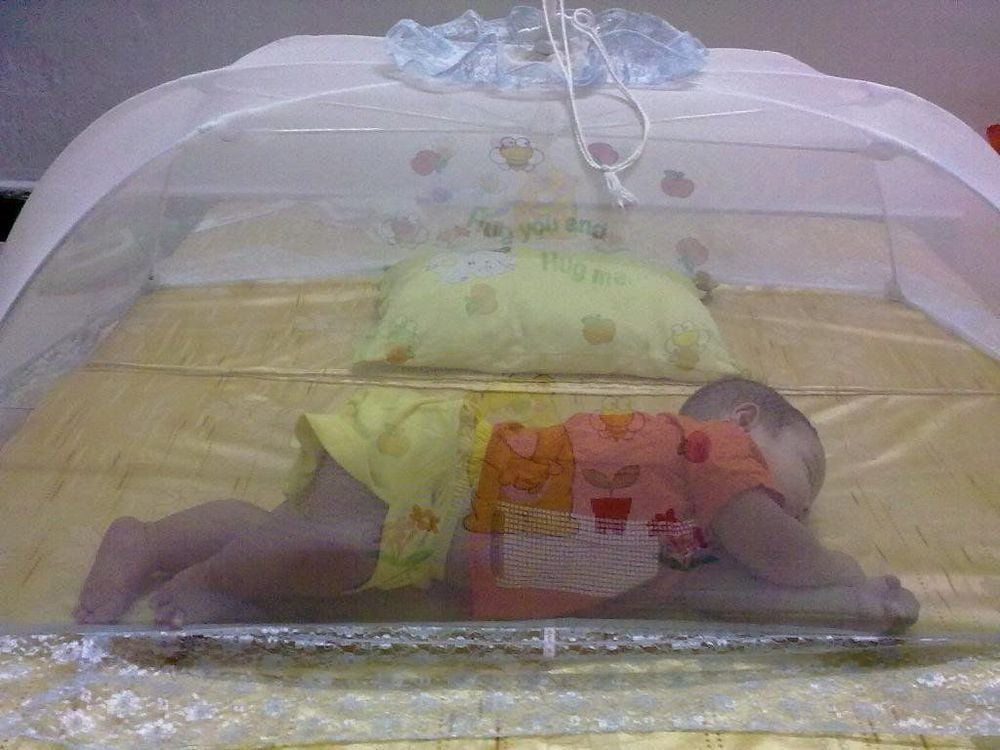
Currently, there is no specific treatment or vaccine for dengue fever. So prevention is better than cure. To reduce the risk of dengue fever for yourself and your family, you need to take the following measures:
- Sleep in a mosquito net, use essential oils or mosquito repellent creams
- Keep the living area clean, and kill the larvae.
- Wear long-sleeved clothes.
- Coordinate with the authorities and the health sector to spray insecticides against dengue fever.
- Using mosquito repellent products is the best way to protect your family. They keep mosquitoes away.
Dengue fever, if not treated properly, can cause many dangerous complications. So, if there are signs of disease, patients can go to Vinmec Health System hospitals for quick tests and treatment.
To arrange an appointment, please call HOTLINE or make your reservation directly HERE. You may also download the MyVinmec app to schedule appointments faster and manage your reservations more conveniently.





